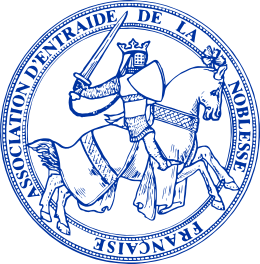News

Is it possible to transfer a noble title?
We have been sent a circular from which we extract the following passages:
" We'd give up 'Title of Marquis', historical name...
" ...
" .... This title has been passed down through the ages, and its current holder, aged sixty-five and without posterity, wishing to perpetuate his family's name, would cede it to a wealthy person of the highest honor, who would continue to bear the name in the traditions of the past.
"This transfer can take the form of either sale or adoption.
"...
"This is a unique opportunity to acquire a historic name that would ennoble (sic) the transferee and his posterity. "
In this form, the offer is a veritable swindle. The title is inseparable from the name, and the family name, being non-tradable and inalienable, cannot be sold, given, bequeathed or pledged: any transfer would be null and void as contrary to public order.
So the buyer, if one is found, will have no right to call himself marquis, and the seller, assuming he regularly possesses this title, will retain the right to wear it.
Some people mistakenly believe they can leave their title and name in their wills. If the Marquis de X. wishes to leave his name to a relative or friend, there is a legal way: adoption. The adopted person legally takes the adopter's name, but adds it to his or her own. If M. de X. adopts M. B., the latter will legally be called B. de X., but not X. at all.
Does the adopter's title ipso facto pass to the adoptee, along with the name? The majority of authors hold in the affirmative, but jurisprudence has clearly gone in the opposite direction. A ruling by the Court of Paris, dated July 18, 1893, states that: " adoption confers the adopter's name on the adopted person, by adding it to the latter's proper name, but that it does not ipso facto and ipso jure result in the transmission of titles, this transmission being subject to the particular rules governing the devolution of said titles, according to the law of their origin ". Another ruling by the same court, dated May 16, 1900, established the same distinction between name and title. Finally, a ruling by the Chambre des Requêtes, dated August 3, 1908, declared that " titles of nobility are transmitted according to the rules determined by the act that created them ".
To take back the name of M. de X., Mr. B. has another means, which we mentioned in our previous bulletin: to appeal to the Minister of Justice to add this name to his own. This favor depends solely on the Government, which can grant or refuse it; the addition of a name of noble appearance is obtained only rarely, and all interested third parties can oppose it.
As for the title, even under the Third Republic, there would be nothing to prevent the Head of State from confirming it by authorizing it to be raised along with the name: this would be a veritable new collation. But, in fact, he hardly ever exercises this right.
A final question arises: would a non-noble adoptee taking the name and title of a noble adopter, or one authorized by the President of the Republic to take up a name and title, be able to claim nobility as a result? We believe we can answer in the negative. The Republic has not legislated on nobility, and ignores it; still less does it intend to create nobles. We must therefore refer, as jurisprudence does for titles, to the rules that governed the old law of nobility. Since adoption did not exist in the old French law, it cannot serve as a basis for the transmission of nobility.
The ennoblements stipulate transmission in the "natural and legitimate" line. Only certain imperial "dignities" allow transmission in the adoptive line, but subject to strict formalities.
Bulletin n°2 - April 1933









